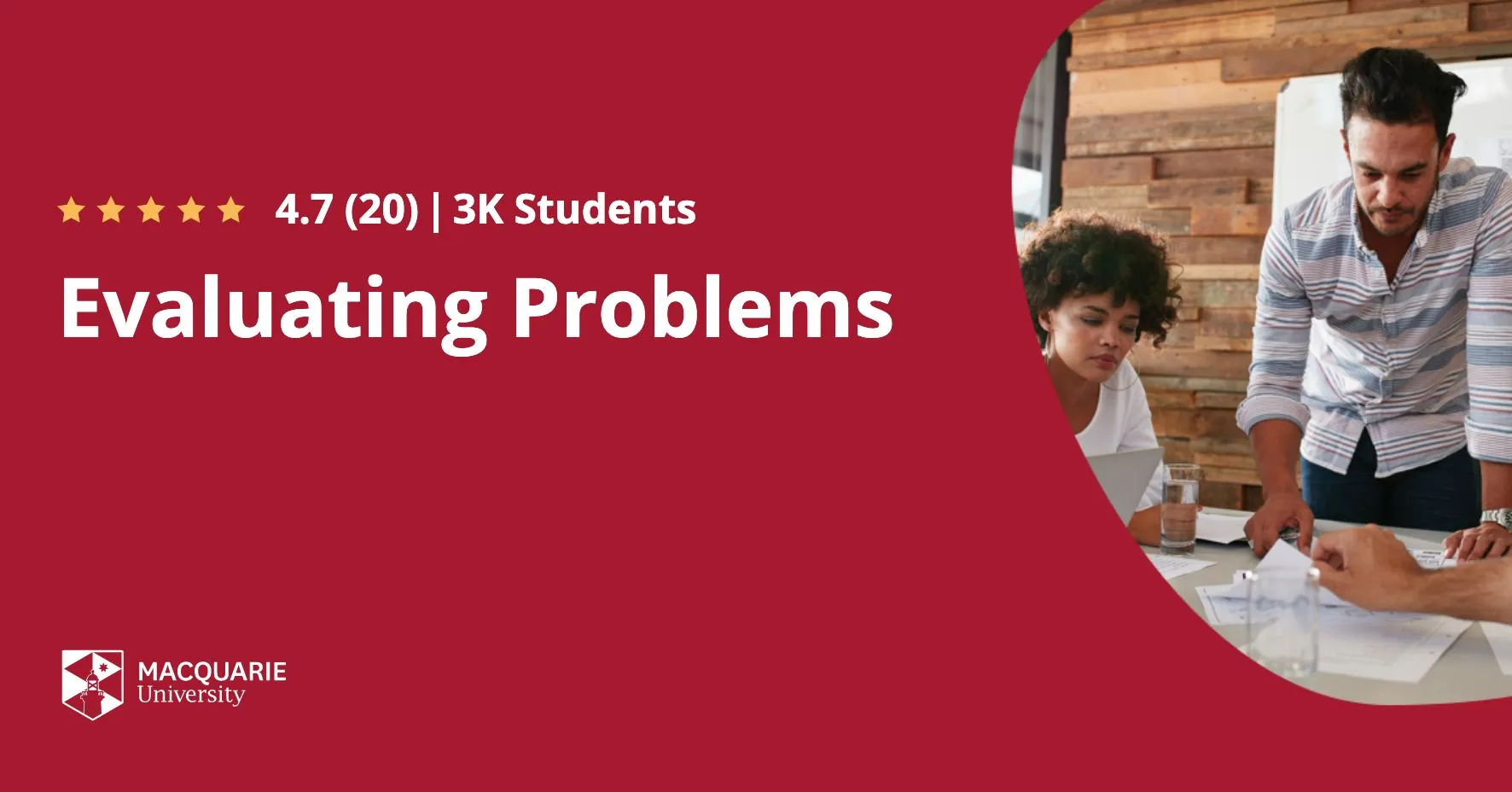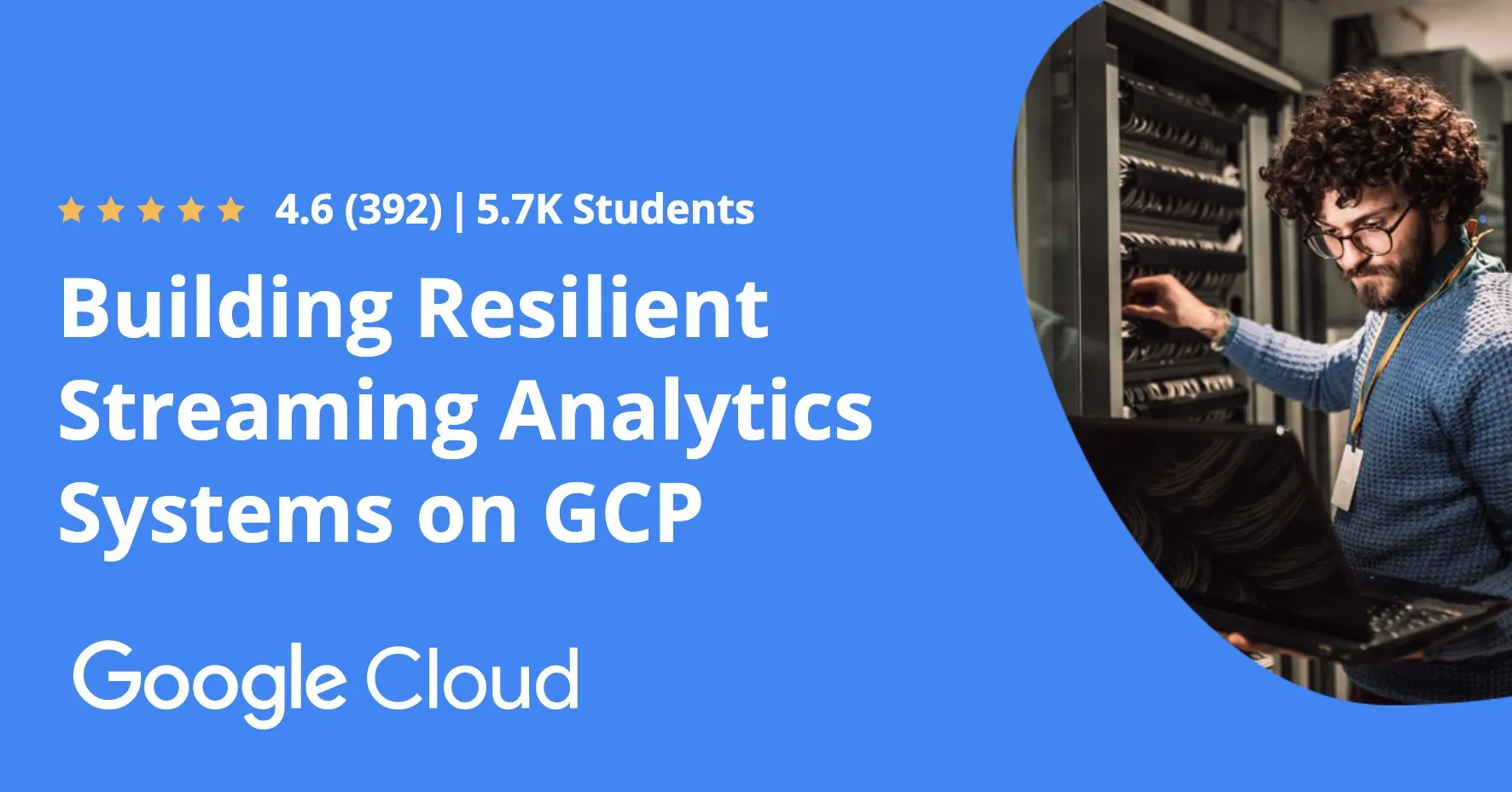
Evaluating Problems 
This course will provide an overview of how humans think and how to use different disciplinary approaches to solve problems more efficiently. It is part of the Evaluating Problems specialization, which will help learners develop the skills to evaluate and solve complex problems. ▼
ADVERTISEMENT
Course Feature
![]() Cost:
Cost:
Free
![]() Provider:
Provider:
Coursera
![]() Certificate:
Certificate:
No Information
![]() Language:
Language:
English
![]() Start Date:
Start Date:
Self Paced
Course Overview
❗The content presented here is sourced directly from Coursera platform. For comprehensive course details, including enrollment information, simply click on the 'Go to class' link on our website.
Updated in [March 06th, 2023]
1. Understanding the Evolution of Problem Solving: Learners can gain an understanding of how problem solving has evolved in nature, from ancient times to the present. This includes learning about the mechanics of the brain and the psychological biases that can emerge when we think. This knowledge can help learners to better understand their own field and how to approach problem solving in a more effective way.
2. Developing Critical Thinking Skills: Learners can develop their critical thinking skills by learning how to evaluate problems from different perspectives. This includes learning how to identify and analyze potential solutions, as well as understanding the implications of each solution. This can help learners to become more effective problem solvers and better decision makers.
3. Applying Philosophical Principles: Learners can gain an understanding of philosophical principles and how they can be applied to problem solving. This includes learning about the different approaches to problem solving, such as deductive reasoning, inductive reasoning, and abductive reasoning. This knowledge can help learners to better understand the complexities of problem solving and how to approach it in a more effective way.
4. Understanding the Science of Problem Solving: Learners can gain an understanding of the science behind problem solving. This includes learning about the different theories and models that can be used to analyze and solve problems. This knowledge can help learners to better understand the complexities of problem solving and how to approach it in a more effective way.
5. Developing Problem-Solving Strategies: Learners can develop their problem-solving strategies by learning how to identify and analyze potential solutions. This includes learning how to evaluate the implications of each solution and how to develop an effective plan of action. This can help learners to become more effective problem solvers and better decision makers.
[Applications]
The application of this course can be seen in many different areas. It can help individuals to better understand their own field and to look at it in new ways. It can also help them to identify and address problems more effectively. Additionally, it can help them to recognize and avoid psychological biases when problem solving. Finally, it can help them to better understand the history of problem solving and how it has evolved over time.
[Career Paths]
1. Business Analyst: Business Analysts are responsible for analyzing data and developing strategies to improve business operations. They use their knowledge of data analysis, problem-solving, and communication skills to identify areas of improvement and develop solutions. The demand for Business Analysts is growing as businesses become increasingly data-driven and need to make decisions based on data-driven insights.
2. Data Scientist: Data Scientists are responsible for collecting, analyzing, and interpreting large amounts of data. They use their problem-solving skills to identify patterns and trends in data and develop solutions to improve business operations. Data Scientists are in high demand as businesses become increasingly data-driven and need to make decisions based on data-driven insights.
3. Software Engineer: Software Engineers are responsible for designing, developing, and testing software applications. They use their problem-solving skills to identify and solve complex software problems. Software Engineers are in high demand as businesses become increasingly reliant on technology and need to develop software solutions to improve their operations.
4. Project Manager: Project Managers are responsible for managing projects from start to finish. They use their problem-solving skills to identify and solve complex project problems. Project Managers are in high demand as businesses become increasingly reliant on technology and need to manage complex projects to improve their operations.
[Education Paths]
1. Bachelor of Science in Computer Science: This degree path focuses on the development of computer systems and software, as well as the design and implementation of algorithms. It is a rapidly growing field, with the demand for computer scientists expected to grow by 11% from 2019 to 2029.
2. Bachelor of Science in Mathematics: This degree path focuses on the study of mathematics and its applications. It is a versatile degree that can be applied to many different fields, such as finance, engineering, and computer science. The demand for mathematicians is expected to grow by 16% from 2019 to 2029.
3. Bachelor of Science in Data Science: This degree path focuses on the analysis of large datasets and the development of algorithms to extract meaningful insights from them. It is a rapidly growing field, with the demand for data scientists expected to grow by 28% from 2019 to 2029.
4. Bachelor of Science in Artificial Intelligence: This degree path focuses on the development of algorithms and systems that can learn and adapt to their environment. It is a rapidly growing field, with the demand for AI experts expected to grow by 44% from 2019 to 2029.
Pros & Cons

Impressive material and presentations

Opens up our mind to understand and evaluate problems

Insightful and astounding

Excelent

Great course and teachers

Light on actual information/teaching

Peer grading not working well

Long wait for final grade
Course Provider

Provider Coursera's Stats at AZClass
Discussion and Reviews
0.0 (Based on 0 reviews)
Explore Similar Online Courses

Crochet Crop Top Tutorials

Building Resilient Streaming Analytics Systems on GCP

Python for Informatics: Exploring Information

Social Network Analysis

Introduction to Systematic Review and Meta-Analysis

The Analytics Edge

DCO042 - Python For Informatics

Causal Diagrams: Draw Your Assumptions Before Your Conclusions

Whole genome sequencing of bacterial genomes - tools and applications

Leadership Skills Mastery Vol 1: Leadership for 2019

What is Leadership?

Leadership for Creatives: Find Your Own Style
 Related Categories
Related Categories
 Popular Providers
Popular Providers
Quiz
 Submitted Sucessfully
Submitted Sucessfully
1. What is the main focus of the course Evaluating Problems?
2. What is the time period covered in the course Evaluating Problems?
3. What is the main purpose of the course Evaluating Problems?
4. What is the title of this course?
Correct Answer: Evaluating Problems


Start your review of Evaluating Problems